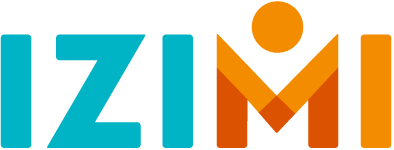Certifying documents
For an inviolable validity of your documents.
Why certify your documents?
An infinite but uncertain digital world
As services become digitalised throughout industries, data and documents increasingly circulate in a digitalised environment. This creates uncertainty about their origin and the guarantee that they are actually issued by the genuine person, entity or source, from whom or which they are supposed to originate.
Money laundering, international legalisation issues, risk of fraud, emergence of fake news, etc. also nurture doubt.
It is therefore essential to be able to guarantee data integrity and origin.
Who may certify documents?
The notary, legal certifier of data
Notaries are mandated by law to certify documents. This role as a data certifier is thoroughly in keeping with the notary’s role as guarantor of the accuracy and authenticity of many data and the notary’s status as a public official who may act with a power of authority.
Notaries are best placed as part of their duties to confirm the origin of data and the conformity of copies or extracts from databases or authentic sources. They therefore have authority to:
- certify the origin of digital data and documents.
- issue certified copies or extracts, in a dematerialised form or otherwise, which certify conformity with the original data or document.
- certify, in a dematerialised form or otherwise, the identity and the electronic or handwritten signature of persons.
Why certification in Izimi?
A platform where data can circulate with proof of their authenticity.
The technology of the Izimi application acts as a “blockchain” to safeguard the immutability and the traceability of data. But certification via Izimi makes it possible to consolidate authenticity with the guarantee as to the origin and the accuracy of data. Izimi, supported by the Federation of Belgian Notaries, offers this unique combination, a chain of trust.
Which types of documents should be certified and in which cases? Some examples
|
Which documents? |
In which case (cases)? |
For the benefit of whom? |
|
Inheritance declaration, gift, sale … |
Proof of source of funds |
Bankers, asset managers, notaries, accountants, real estate agents ... |
|
Private agreement e.g., |
Verification of the identity of signatories = conclusive evidence in the event of conflict |
The persons involved in the agreement |
|
A hard copy of a notarial deed |
Loss, theft, destruction ... |
The bank, the notary ... |
How does it work?
You feel the need to have additional protection?
- Talk it over with your notary and he will determine whether he may certify your document/data or not.
- Your notary will inform you of the procedures.
- You will have to have activated your personal Izimi vault.
- If the notary can digitally certify your document, your notary will send it to you directly into your Izimi vault.
- The certification data may be directly consulted in your Izimi vault.
- If you share a certified document, the persons with whom you share that document can also consult the data of the certificate.
What does a digital certificate look like?
In practical terms:
- By downloading the certified PDF from Izimi, it will have a digital cover page containing the digital certification data. The PDF is signed by:
- The notary who is the guarantor of certification
- Fednot – the Izimi platform administrator
- Two different timestamping services
- These measures comply with the qualified signature requirements as mentioned in the signature policy. You may check the signature by using a service such as: https://ec.europa.eu/digital-building-blocks/DSS/webapp-demo/validation

